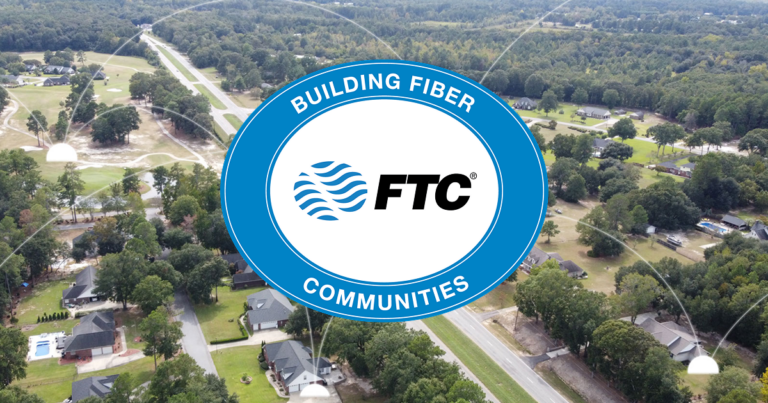How To Get on the Do Not Call List & What To Do When It Does Not Work
By now, many are fed up with incessant and unwanted telemarketing calls and have put their phone numbers on the National Do Not Call Registry. The federal database, which was started in 2003 following the passage of the Do-Not-Call Implementation Act of 2003, requires callers making sales calls to personal phone lines to refrain from contacting the individuals on the list.
As of 2022, the registry included nearly 244 million phone numbers. So what steps should those people on the list who are still getting unwanted calls from telemarketers take? Here are some to consider:
What To Do When the Do Not Call Registry Does Not Work
The three best ways to handle unwanted calls if the National Do Not Call Registry does not work are to screen calls with caller ID, file a complaint with the Federal Trade Commission and be patient and wait for the registry to take effect.
- Simply hang up to avoid the dangers of robocalls and spam calls. Interacting in any way with the illegal call, whether it is speaking with a live caller or pressing a button in hopes of reaching a live person during a robocall, could let the illegal caller know that a person is there and responsive, potentially leading to additional calls. Be sure not to provide any personal information as illegal callers are often scammers.
- File a complaint. People can report the illegal call to the Federal Trade Commission by visiting donotcall.gov or by calling 888-382-1222. They will be asked to provide their phone numbers, the times they received the unwanted calls, and whether the calls were recorded robocalls, along with any information about the callers they can provide, such as the numbers that called and the name of the companies calling, if available.
- Be patient. Due to the volume of reports received, the Federal Trade Commission cannot directly respond to every complaint. But when enough people file complaints regarding a particular violator, investigators can spot trends, identify the parties responsible for the illegal calls and take legal action. So far, the agency has filed lawsuits against hundreds of companies and individuals found responsible for placing unwanted calls, leading to more than a billion dollars in judgments against offenders. (Violations are punishable by fines of up to $41,484 per call.)
- Look into call blocking and be aware that spam callers can spoof local numbers to make people think they might know the callers. If people get repeated calls from the same unwanted callers, they should consider blocking the number on their phone by utilizing FTC’s Call Screening Reject. Or, with FTC’s Telemarketer Interceptor service, they can block telemarketer calls while sending messages to the telemarketers that they do not accept such calls. If the callers are not telemarketers, they are offered the option of dialing 8 to complete the call. The service is available for just $1.50 a month. Call 888-218-5050 to activate or to learn more.
- Get AT&T Call Protect. This app, which can be activated for free by FTC postpaid subscribers who have iPhones with support for HD Voice, automatically blocks calls from numbers flagged as “fraudulent.” Customers can manually block specific numbers for a period of 30 days, and if spam calls get through, recipients are notified with an in-call popup from which they can accept or deny the call. The AT&T Active Armor app can be downloaded from the Apple App Store.
How To Stop Spam Calls and Get on the National Do Not Call Registry
Visit donotcall.gov or call 888-382-1222 to register your home or mobile line for free.
Illegal Call Types
Once businesses are notified that a number is on the Do Not Call Registry, robocalls and live telemarketer calls featuring a sales message are considered illegal. However, according to Federal Trade Commission statistics, robocalls still accounted for more than 3.4 million Do Not Call complaints in FY 2021, while live callers accounted for 1.1 million. Those who receive unwanted sales calls after they have joined the registry should file a complaint.
What Types of Calls Are Allowed if You Are Registered on the Do Not Call List?
Registered numbers are still allowed to receive political calls, collections calls, charitable calls, surveys and calls from businesses. It is important to note the Do Not Call Registry views spam calls and unwanted calls differently, and just because a person does not want to be contacted by some organizations does not mean they cannot contact the person if he or she is on the Registry.
Who Can Contact You if You Are on the Do Not Call Registry?
- Callers To Businesses: Only personal phone numbers can be listed on the registry, so the call limitations do not apply to calling business lines or to making business-to-business calls.
- Political Organizations: Political organizations can still call numbers listed on the registry as can nonprofit organizations and those conducting telephone surveys.
- Callers Within 30 Days After You Register: Unless specifically asked not to do so, a company may call people on the Do Not Call list for up to 31 days after they have submitted applications or inquiries to that company.
- Bill Collectors: Bill collectors can still make calls to numbers on the Do Not Call list, although other laws place certain restrictions on such calls, such as limiting them to “reasonable hours” and limiting the number of calls to those who have filed for bankruptcy.
- Charities: Charities are still allowed to call registered numbers to request donations. If individuals do not wish to be contacted by the charities again, they can ask them to remove their information from their list. This is not the same as the Do Not Call List, however, and they might still be contacted by those charities in the future.
- Organizations Conducting Surveys: Whether people find them annoying or interesting, organizations conducting surveys can still contact them and ask them to participate in their survey. Those who do not wish to participate should simply hang up.
South Carolina by the Numbers
Residents of South Carolina filed 50,002 Do Not Call complaints in FY 2020, ranking the state 36th nationally based on calls per 100,000 residents. The state ranks 46th nationally in active registrations per 100,000 residents.
Tired of Telemarketer Calls?
Get FTC’s Telemarketer Interceptor service, available for just $1.50 a month. Call 888-218-5050 to activate today!




